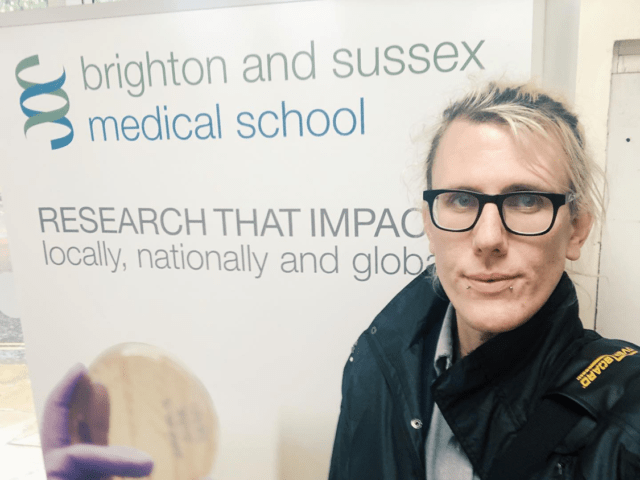Dr Simon Mitchell is a member of the Science Subgroup of the NCRI Lymphoma Group and has recently been awarded a UKRI Future Leaders Fellowship. Simon is an early career researcher, and as a member of the science subgroup of the NCRI Lymphoma Group, he develops research into the underlying science of cancer of the lymphatic system.
How did you get into clinical research?
My route to work on lymphoma was a little unusual! Following undergraduate training in computer science and maths, I discovered the field of systems biology, in which mathematical equations and computing are used to simulate biological systems. My PhD involved using these approaches to investigate human regulation of iron in health and disease. I then moved to America for a postdoctoral position at the University of California, Los Angeles (UCLA) focusing on immunology and immune cell signalling. It was at UCLA that I realised my simulations didn’t only replicate healthy immune responses, but if I introduced mutations to them, I could recreate lymphoma. I saw the potential to use this approach to develop a more targeted and personalised approach to treating B-cell lymphoma. Last year I joined Brighton and Sussex Medical School as a lecturer to work towards improving treatments for lymphoma through computational systems biology.
What does your research involve?
My research involves representing biological processes as systems of equations and then solving these equations using a computer. I focus on molecular signalling pathways as these pathways control the fates of B-cells in health and lymphoma.
For the UKRI Future Leaders Fellowship, my group will use the rapidly expanding wealth of knowledge on the heterogeneous mutations and signalling dysregulation in B-cell lymphoma patients to create simulated patients. We will then simulate therapy and the emergence of treatment-resistant lymphoma in these patients. This will allow us to perform virtual trials of many potential therapies to treat or avoid treatment-resistance, the most promising of which we will take to the lab to begin developing new therapeutic approaches.

Why did you join the NCRI Lymphoma Group?
I wanted to bring a computational biology perspective to the NCRI Lymphoma Group. From participating in conferences, it became clear that the scientific and clinical discussions around lymphoma were shifting from a single disease requiring a single treatment, to a heterogeneous disease requiring a more stratified, targeted and personalised approach. To get the right targeted therapies to the right patients requires access to the best data and samples, along with appropriate computational techniques. I hope through participation in the lymphoma subgroup as an early career researcher, we can ensure clinical, cellular and molecular science inform, and are informed, by computational systems approaches to work towards new targeted therapies for lymphoma.
What opportunities has the group provided you as an early career researcher?
Joining the NCRI Lymphoma Group has been a fantastic opportunity to be introduced to the most exciting Lymphoma research in the UK and internationally. When applying and being interviewed for research funding opportunities, being able to point to my role of the NCRI Lymphoma Group and the connections I have made as a result has reassured founders that I am integrated into a vibrant and supportive community who want to see me succeed and have an impact on lymphoma. As I move forward with my work, I know I can use my connections within the NCRI Lymphoma Group to access the data, samples and insight. In turn, I hope to support others, especially early career researchers, with the lessons I have learned as an early career researcher moving from overseas to join the lymphoma community in the UK.
Do you have any advice for early career researchers?
Find a few senior researchers, through conferences and conversations, who share your vision for the future. Be generous with your ideas and data in these conversations, as those who share your vision will want you to succeed, and you can’t do it alone.
As an early career researcher, securing independent funding is vital to be able to do what you want to do. Applying for grants is challenging, and rejections are inevitable, but I think one of the most important things for early career researchers is not giving up. When you receive a rejection, take the feedback on board without losing sight of why you were passionate about a project in the first place and move forward to the next application. In this process, your vision will refine, and the research you end up doing will improve. Remember the rejections aren’t a reflection of your value as a researcher, and each rejection means you’re one step closer to success.